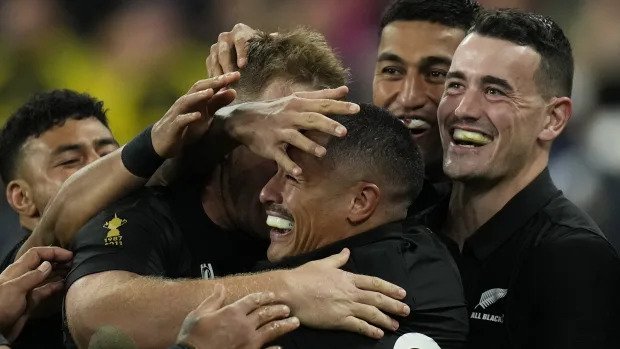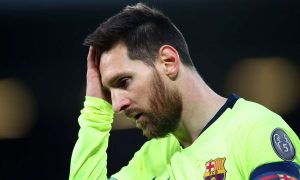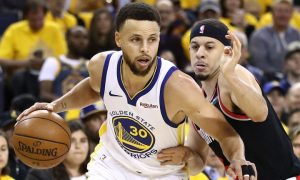New Zealand outperformed Argentina 44-6, securing their spot in the Rugby World Cup final in a dominant display.
This impressive victory sets the stage for an eagerly anticipated final clash with the winner of the second semi-final, featuring England and the defending champions, South Africa.
The match, held at the rain-soaked Stade de France, marked a historic moment as the All Blacks became the first team to reach the World Cup final for the fifth time. Jordie Barrett, who was awarded the player of the match, expressed his pride, saying, “It’s so sweet. It’s new territory for this group. I am just so proud of this group. It’s not done yet. We will have a very tough match regardless of who we have next week.”
The three-time champions, who delivered an electrifying victory against Ireland in the quarter-finals, outscored Los Pumas by seven tries to none. They seamlessly combined staunch early defence with an exuberant offensive performance.
With history favouring New Zealand, having won 33 of the 36 previous encounters against Los Pumas, the match highlighted the All Blacks’ dominance.
While Emiliano Boffelli opened the scoring for Argentina with a fifth-minute penalty, New Zealand’s prowess quickly overshadowed their opponent.
Opting for a kick to the corner instead of an early penalty goal attempt, the All Blacks executed a well-orchestrated line-out, followed by a series of pick-and-drives. A precise, long pass from Richie Mo’unga reached Will Jordan, who effortlessly crossed the try line, and converted by Mo’unga.
The All Blacks continued to shine as forwards and backs combined seamlessly. Will Jordan transition from scorer to provider, luring in the final defender to create an opening for Jordie Barrett’s try?
Argentina struggled to maintain composure around the breakdown, resulting in repeated infringements and territorial losses.
Despite Boffelli securing a second penalty for Argentina, Juan Martin Gonzalez’s high tackle on Jordan led to another penalty, which Mo’unga successfully converted.
Mark Tele’a, back on the field after serving a one-match suspension for a team protocol breach, displayed his brilliance by eluding four defenders en route to the try line.
A well-executed play led by Aaron Smith found Shannon Frizzell unmarked on the wing, allowing the standout flanker to score the All Blacks’ third try.
With a halftime score of 20-6, the game seemed to be firmly in New Zealand’s grasp. The second half continued to favour the All Blacks, with Aaron Smith scoring a classic scrum-half’s opportunistic try. Mo’unga added the extra points.
New Zealand persisted in their dominance, as Tele’a’s contribution drew three defenders, providing the opportunity for Shannon Frizzell to secure his second try through sheer strength.
A series of substitutions disrupted the game’s flow, but Tele’a’s dazzling performance drew in three defenders, leading to Will Jordan’s second try.
Scott Barrett received a yellow card for an unnecessary ruck infringement, but Will Jordan concluded the match with a remarkable chip-and-chase, securing his third try and matching the World Cup try record with Jonah Lomu, Julian Savea, and Bryan Habana.
While Argentina remained tenacious, they managed to avoid the humiliation of suffering the largest margin of defeat in a World Cup semi-final. In 1987, the All Blacks defeated Wales 49-6 in the same stage of the tournament.
All Blacks coach Ian Foster expressed his satisfaction, emphasizing that his team had achieved their goal and now had the opportunity to win the tournament.



























